Loading...

1. Orang Johor ni selalunya amat sabar dan tidak buat heboh. Mereka selalu kata: "Kitĕ adĕ carĕ kitĕ sendiri."
2. Di kalangan ahli politik, kalau pun ada yang celupar hanya beberapa kerat sahaja. Orang politik Johor anggap diri mereka "gentlemen".
3. Mereka akur kepada ketua dan pemerintah sehingga sanggup dibuli, dipersenda, dipermain malah dianiaya.
4. Jadi apabila mereka bangkit dan membuat perubahan seperti menendang keluar Umno dari negeri Johor pada PRU 2018, mesti ada sesuatu yang amat besar menyebabkan mereka bertindak sedemikian.
5. Mereka umumnya terpelajar dan nampak penipuan yang dilakukan oleh Mohd Najib serta konco-konconya. Apabila Muhyiddin Mohd Yassin dipecat daripada kerajaan dan Umno kerana mempersoalkan tindak-tanduk Najib, orang Johor bangkit.
6. Malangnya setelah berjaya menumbangkan Umno/BN dan menjadi wira rakyat jelata, dalam masa tidak sampai dua tahun selera Muhyiddin berubah. Dia benci Pakatan Harapan dan kembali menerima Umno sebagai rakan seperjuangan.
7. Pada 23 Februari, di mesyuarat tergempar Majlis Pimpinan Tertinggi (MPT) Bersatu, Muhyiddin yang terkenal dengan sifat lembut, santun dan berdiplomasi itu tiba-tiba menjadi keras dan tidak bertolak ansur mahu Bersatu keluar daripada PH dengan serta-merta.

8. Setelah hampir dua bulan menjadi Perdana Menteri, nyata bahawa dia tidak cukup bersedia dan tidak cukup kuat untuk melawan "perancangan" (scheming) oleh para panglima perang Umno, sama ada yang menganggotai Kabinet atau yang berada di luar.
9. Akibatnya, pejuang-pejuang asal Bersatu yang mengambil risiko bertarung melawan kleptokrasi Umno, semakin hari semakin dipinggirkan akibat tekanan rakan-rakan baru Muhyiddin dari Umno dan Pas.
10. Ironinya ialah yang paling teruk didera dan dianiaya adalah pejuang-pejuang asal Bersatu di Johor. Mula-mula sekali Bersatu hilang kerusi Menteri Besar kepada Umno dan kini jawatan-jawatan lain juga telah dirampas oleh atau sedang diancam.
11. Ingatan saya kembali kepada PRU 1982 apabila saya ikut Tun Musa Hitam, yang ketika itu Timbalan Perdana Menteri, ke Desaru untuk memilih calon Umno Johor bagi pilihan raya tersebut. Di situlah saya mula mengenali dan menyedari "exclusivity" politik Johor dan cengkaman Umno ke atas negeri itu.
12. Sejak itu, saya sering mendengar ungkapan Umno dan Istana tidak dapat dipisahkan atau Umno lahir di Istana Johor.
13. Melihat ini semua, khususnya peminggiran Bersatu di Johor, saya tertanya-tanya adakah Tan Sri Muhyiddin sedang melakukan perjalanan balik ke pangkuan Umno?
14. Kalau kita percaya neratif para panglima perang Umno, Perikatan Nasional adalah sementara sahaja. Jangka usianya hanya tiga tahun. Yang kekal adalah Muafakat Nasional di antara Umno dan Pas. - a.kadir jasin

Kedua-dua pinjaman pada masa ini tidak dikenakan caj faedah, tetapi Bank Negara Malaysia (BNM) dan Persatuan Bank Malaysia (ABM) telah mengumumkan perubahan yang akan berkuat kuasa esok (1 Mei 2020).
Menurut siaran media, BNM memberitahu bahawa mulai 1 Mei 2020, moratorium 6 bulan tidak lagi menjadi pilihan automatik untuk semua pelanggan. - Siakap Keli

Mak Cik Kiah sangkakan panas hingga ke petang, rupanya hujan di tengah hari.Sabaqlah Makcik Kiah.Sesungguhnya janji Melayu utk kaya cepat ni haram tak boleh pakai!..- f/bk
SEBELUM U-TURN (31 Mac 2020)
Ansuran 6 bulan ditangguh, tiada perubahan dalam jumlah bayaran.
SELEPAS U-TURN (30 April 2020)
1. Bayar sekali gus 6 bulan bersekali bayaran ansuran bulan Oktober 2020.
Atau
2. Bayar ansuran Oktober, panjangkan tempoh 6 bulan, faedah dicaj pada baki yang hutang yang tinggal. Ansuran bulanan akan bertambah.
Kalau ada interest baik tak payah buat moratorium,betoilah gomen pintu belakang ni,cakap punyalah manis,akhir cara diam2 dia asak mai kot pintu belakang juga...- f/bk

Ikut option ini kalu tak nak kena interest kena bayar 6 bulan loan sekali gus pada Oktober; sapa boleh himpun 6 month of loan? Contoh,kalau loan rumah dan kereta total RM2 ribu, maknanya bulan ke-10 nanti kena bayar RM14 ribu sekali gus (campur bayaran bulan ke 7). Dah mabuk todi kot? Tak pikiaq lah yang orang takdak kerja beberapa bulan ni... - f/bk

Ikut option ni, ambil moratorium, bulan 10 bayar loan tapi kadarnya sudah berbeza dan akan naik dari jumlah asal. Ertinya peminjam akan melihat kadar ansuran bulanan mereka meningkat mulai Oktober 2020.Berapa kadar kenaikkannya, itu kena tanya bank. Kalau naik tu sikit takpalah tapi kalau naik terlalu tinggi akan membebankan peminjam,dahlah beberapa2 bulan ni tak bekerja.Ni sama kes dengan bantuan prihatin Makcik Kiah,gomen goreng sampai dapat RM8 ribu, last2 yang RM800 pun tak tau bila nak masuk...- f/bk
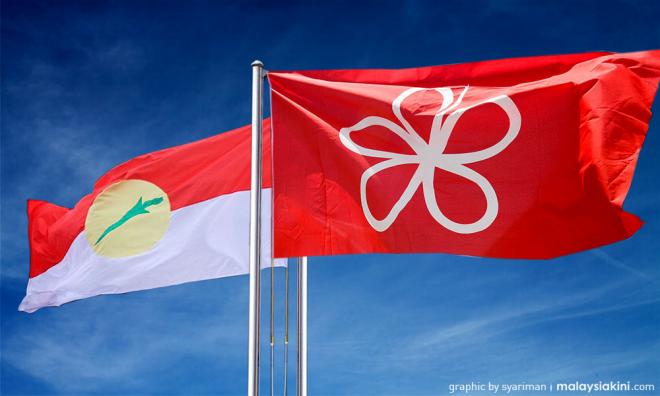
PPBM-UMNO ties must translate
into distribution of positions...
The relationship between Bersatu and Umno in Perikatan Nasional was not just about mutual respect but it must translate into the equitable distribution of positions, according to a Johor Bersatu leader.
The leader, who requested anonymity, said this when asked for his take on Johor Bersatu secretary's recent open letter on the relationship between the two parties. The source said although Johor Bersatu respected their Umno counterparts, it was acceptable for coalition members to remind each other of their needs.
"We must not just issue reminders. Our understanding (between the two parties) must translate into something material. For instance, positions in GLCs and other areas.
"This cannot be avoided... When we are in power, there are certain areas which the power will translate into positions that must be distributed equitably," he said.
On April 27, Mohd Solihan Badri (photo,below) penned a public essay, urging Umno not to neglect Bersatu because they needed each other to rule Johor. Solihan, who is both the state cabinet member and Tenang lawmaker, also said that Bersatu's inclusion in political appointments, such as GLCs, must be part of the "rules" for PN's collaboration.
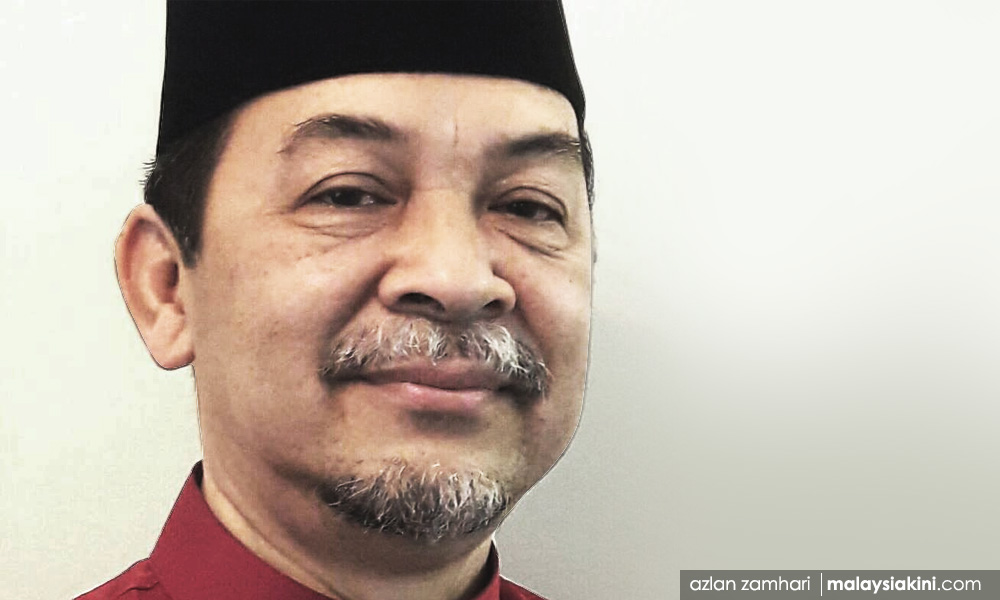
Consensus easier in Harapan
The source said there were also problems in achieving a consensus between Bersatu and Umno, while claiming that discussions were not as smooth as when Pakatan Harapan was ruling the state
"Sometimes, our leader Mazlan Bujang find it hard to communicate with Menteri Besar Hasni Mohammad.
"Sometimes, discussions are not smooth at the division level as well. It's not difficult to reach a consensus, but in these instances, it was not as smooth as before.
"Perhaps it is because (the PN coalition) is still new. We haven't had the time (to discuss properly because of) Covid-19. Our relationship has yet to blossom," said the source.
He said there are also some in Bersatu who disagree with being in a coalition with Umno while others are worried that the party would be sidelined by Bersatu.
"Hence, this process will take time. There has to be a force to unite (the two parties)," he said.
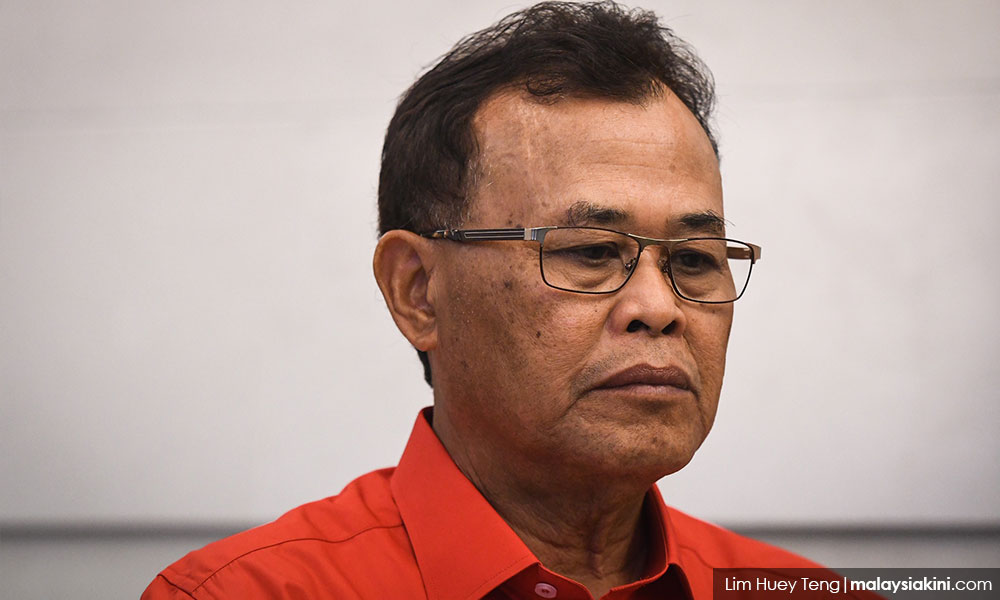
Umno is shoring up power
Meanwhile, former Johor menteri besar Osman Sapian, who is also a Bersatu lawmaker for Kempas, agreed with the source's sentiment and pointed out that some Bersatu political appointees have been unceremoniously removed by the PN state government.
Among others, Osman (photo,above) revealed that Mersing MP Latif Ahmad, a Bersatu member and now the Rural Development Ministry, had removed several Bersatu members from the board of some agencies under his care.
Among those removed were Permas state lawmaker Che Zakaria Mohd Salleh, who was a member of the Johor Tenggara Development Board. Osman said Che Zakaria was removed without any notice.
"It's not about opposing (Umno), but it seems that they want to monopolise power...
"If Bersatu is not part of PN, we won't be the government. Although we are a minority, Umno needs us too," Osman told Malaysiakini.
Osman was also unhappy with Umno vice-president Mohd Khaled Nordin's appointment as the chairperson of the Pasir Gudang Foundation.
"What is Khaled? He is not an MP or state assemblyperson. He's a nobody.
"These issues make it seem like they are sidelining and using us to be the government to strengthen their position in places where they lost (during the last general election).
"This is causing dissatisfaction (in Bersatu)," he said. - Yasmin Ramlan,mk

Malaysia: adrift on the
waters of uncertainty...
Years from now, historians might well come to see GE14 as the high watermark of non-Malay participation in the governance of the nation. It brought more non-Malays to parliament than ever before and with that all manner of positions in cabinet and beyond. Non-Malays were, for the first time in a very long time, appointed to key positions like the finance minister and the attorney-general.
It certainly gave non-Malays an immense sense of belonging, a feeling that at last they were being treated with some fairness and respect. While many considered it appropriate given our population mix, Ketuanan Melayu ideologues found it absolutely unacceptable.
The collective demonization of non-Malays and the rejection of their status as equal citizens are now so mainstream that non-Malay political parties will likely never again be allowed to rise to a similar position of strength. Successive gerrymandering measures have already diluted the non-Malay vote and deprived non-Malays of the opportunity to compete equally for seats in parliament. It will get worse the more entrenched Ketuanan Melayu politicians become.
The DAP for its part had a once-in-a-lifetime opportunity to counter long-held misconceptions that they were hostile to the Malays, that they were there only to look after Chinese interests. In hindsight, they could have done more to counter the vicious disinformation campaign that was launched against them by the whole Ketuanan Melayu establishment. It would have been nice as well if some of their Malay colleagues in PH had stood up for them more forcefully.
There is no doubt too that hubris and arrogance also played a part. One former DAP minister, for example, retorted in a private meeting that those who didn’t agree with the government should form their own political party or vote for the opposition. Once in Putrajaya, they seemed to have quickly lost touch with their own grassroots. Even in Penang, long a DAP stronghold, disenchantment is growing.
Whatever it is, the damage is done. Their image has taken a terrible beating especially among the Malays. They may continue to win elections in Chinese majority areas but they are unlikely to ever regain the influence they had in the early post-GE14 years.
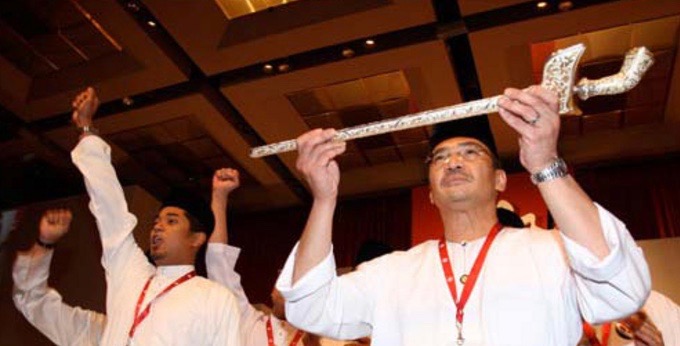
In the meantime, uncertainty about their place in Malaysia will convince more and more non-Malays to consider migration. The more they suffer discrimination and marginalization, the greater will be the push to leave. And who can blame them? Malaysia will lose some of its brightest and best along with billions in capital outflows but don’t expect the Ketuanan Melayu crowd to lose any sleep over it.
One of the consequences of the political disenfranchisement of the non-Malays will be a weakening of support for the secular democratic moorings of our nation. Non-Malays, after all, have been amongst its strongest and most articulate supporters. Malay democrats and reformers (and there are many of them) will find themselves increasingly isolated and at the mercy of the religious establishment.
What all this means is that the ‘Sheraton Move’ which eventually brought this Malay unity government to office by the backdoor and without a popular mandate of its own might well set in train trends that will shake the very foundations of our nation. Whether intended or otherwise, it will reverberate well beyond the petty ambitions and greed of the unscrupulous politicians who gathered there on the night of February 23rd. As with so many things in life, the law of unintended consequences has a way of exacting its own revenge.
Of course, the future is never written in stone. There’s no shortage of political commentators who end up with egg on their faces trying to catch a glimpse of the future; but it is a risk that must be taken if only to force us to consider the likely consequences of our decisions.
In the end, the future of our nation might come down to three crucial questions. First, can the unity government survive? Malay unity has thus far proven to be ephemeral. Will the shared bonds of ethnicity and religion be enough to keep them together? The record is not exactly inspiring, especially when you consider that some of these leaders have gargantuan egos and supersized ambitions to match. They all want to be master of the universe.
Even as we speak, PN parties are busily jockeying for power and position, each demanding more and more of Muhyiddin in exchange for their support. Could they be preparing for the mother of all battles come GE15 to see which Malay party will rule them all? Suspicion and distrust, like termites, can weaken even the strongest structures, unseen and from the inside.

The second question is whether they can adequately manage the economy. The Covid-19 pandemic is already placing huge stress on the economy. With global markets badly affected by the contagion, growth will slow considerably. Millions could lose their jobs and their homes. Add to that falling oil and export revenues coupled with massive stimulus spending and you have all the ingredients for a perfect storm. The reintroduction of GST together with budget cuts across the board seems inevitable.
Before this is over, a lot of people – particularly from the B40 group – are going to feel a lot of pain. And they are likely to take it out on whoever sits in Putrajaya. Does Muhyiddin’s government have the wherewithal to act decisively and innovatively to restore our economic fortunes? And can he keep the plunder of national wealth to a minimum?
While Malaysians, of course, have a high threshold for pain at the hands of an abusive government, the PN government could find itself in deep trouble if too many people feel too much pain for too long.
The third question is how will moderate Malays respond. The Ketuanan Melayu agenda is by no means universally shared by all Malays. Many Malays are equally sick and tired of all the corruption, the abuse of power and the growing trend towards religious extremism. Indeed, an increasing number of them are so fed up that they too are leaving.
Will the ‘Sheraton Move’ finally galvanize moderate Malays (and perhaps the mythical silent majority) to step up to the plate to counter the dangerous forces that have been unleashed in our nation? Will they be able to create a genuine third force to reclaim Tengku Abdul Rahman’s vision of a constitutional democracy “founded on the principles of liberty and justice and ever seeking the welfare and happiness of its people” or will they go meekly into the night?
In the end, it’s going to be largely up to the Malay majority to make what they will of this nation; let us hope they will rise to the challenge with courage, justice and sagacity. And let’s hope it’s not too late. - Dennis Ignatius

Haji Abdul Hadi, Ust Dr. Khairuddin at-Takiri,
please take note. Jangan dok main redah aje ya...-f/bk

Lately, the number of new Covid-19 infections in Malaysia has
steadily declined and the recovery rate has risen to 69.5 percent...
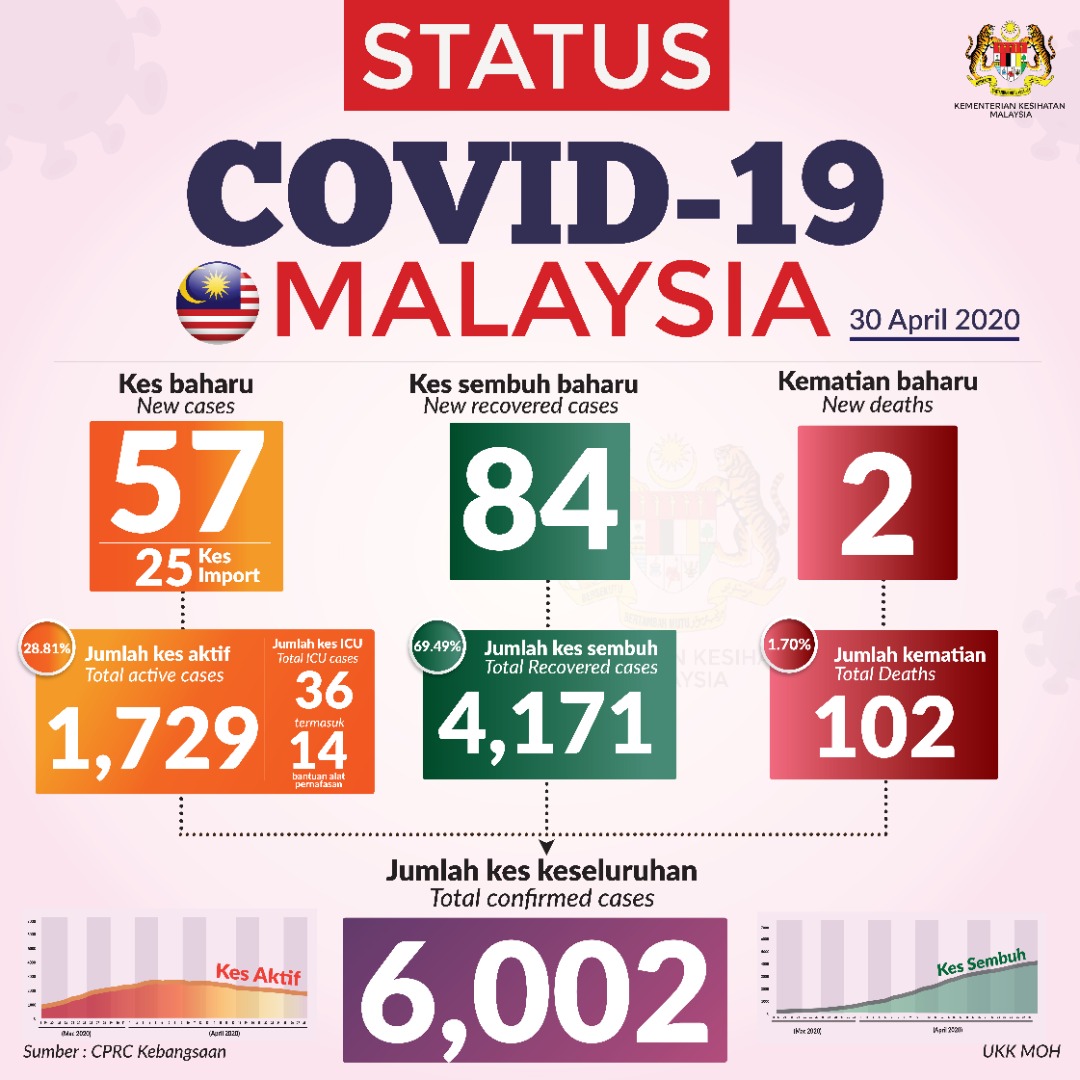
Loading...


0 Response to "Din kalah dengan penyagak dan kawaq UMNO..."
Posting Komentar